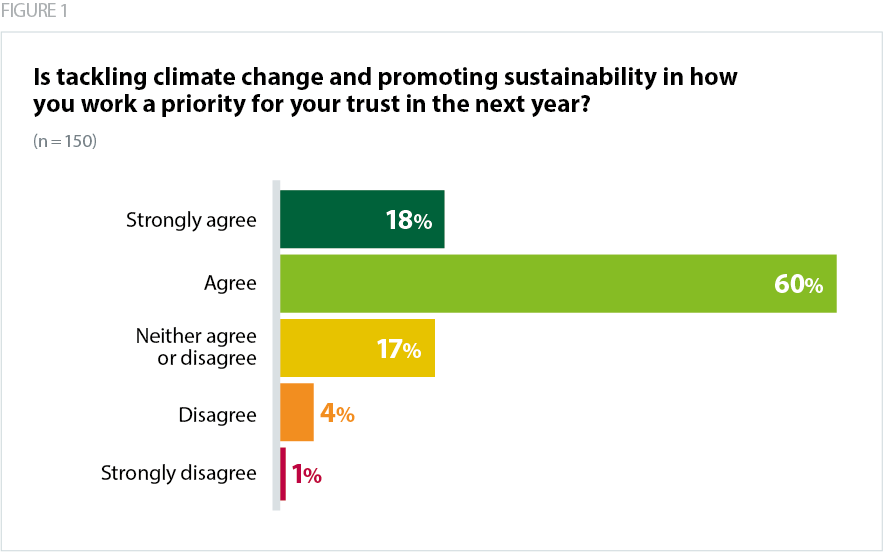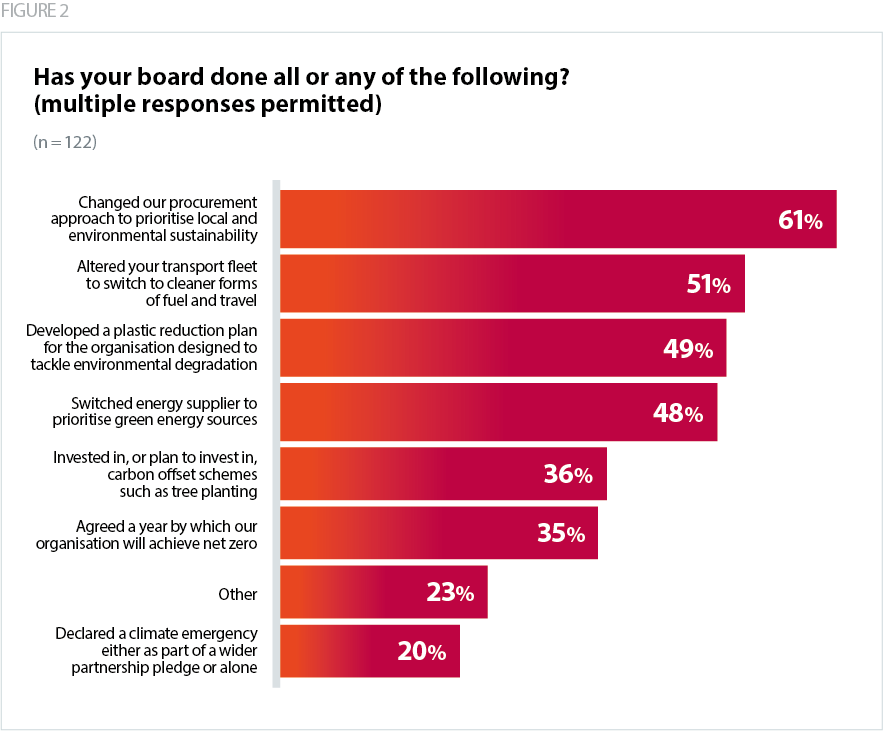National policy developments
In October 2020, the Greener NHS National Programme published its strategy, Delivering a 'Net Zero' National Health Service, in which the NHS committed to the ambition of becoming a net zero-carbon health service by 2040 for emissions it controls directly and 2045 for emissions it can influence. The NHS in England was the first national health service to commit to becoming net zero, and set out the scope, scale and speed required to make this ambition a reality. The NHS is already progressing work to reduce its environmental impact, including working with suppliers to incentivise decarbonisation of their products.
NHS England and NHS Improvement has been tracking and reporting the NHS' carbon footprint since 2008. Since then, it has developed its data collection methods to enable more granular information of carbon footprints at regional, ICS and trust levels. In April 2021, the Greener NHS National Programme launched the greener NHS data collection, to better understand the impact of actions taking place over 2021/22 to reduce carbon emissions and provide a baseline from which progress can be measured and understood. This includes key indicators, such as for anaesthetics, inhalers and building energy use.
In June 2021, the greener NHS team published guidance, How to produce a Green Plan: A three-year strategy towards net zero, setting out a requirement for all trusts and ICSs to develop a green plan, approved by the organisation or system's board or governors. It expects every trust to finalise and submit a green plan to their ICS in January 2022 and all ICSs to submit their plans by 31 March 2022. Trusts will be expected to feed into their ICS' system-wide green plan. These plans will be peer reviewed by their respective NHS England and NHS Improvement regional team and subsequently published.
The NHS ambition to be a net zero health service provides trusts with an opportunity to plan and prioritise how they will reduce their carbon emissions over the next two decades. However, it is important that this is prioritised sooner rather than later, particularly where quick progress is possible and where efficiency savings can be generated.
Trusts' commitment
In the context of operational and financial pressures and the COVID-19 pandemic, trusts across the country are working hard to reduce emissions and embed sustainability into how they work. In our annual State of the provider sector survey, we asked trusts, for the first time, how they are prioritising environmental sustainability within their organisation.
The majority (78%) of trust leaders who responded agreed or strongly agreed that tackling climate change and promoting sustainability in how they work is a priority for them in the next year (Figure 1).

Furthermore, around half (61%) of respondents told us they have already made changes to their procurement approach, altered transport fleets to cleaner vehicles (51%), developed a plastic reduction plan (49%), and switched energy suppliers to prioritise green energy sources (48%) (Figure 2). Many of these changes represent small but impactful changes which are easy to implement and cumulatively help to reduce trusts’ environmental impact.

The national ambition from NHS England and NHS Improvement to tackle climate change and improve sustainability is enabling trusts to prioritise this issue. However, it will be important that this commitment is upheld by tangible support, action and guidance so that trusts are able to embed this into their 'business as usual'. This issue should be a key element of ICSs' work and a key matter for trust board governance and leadership.